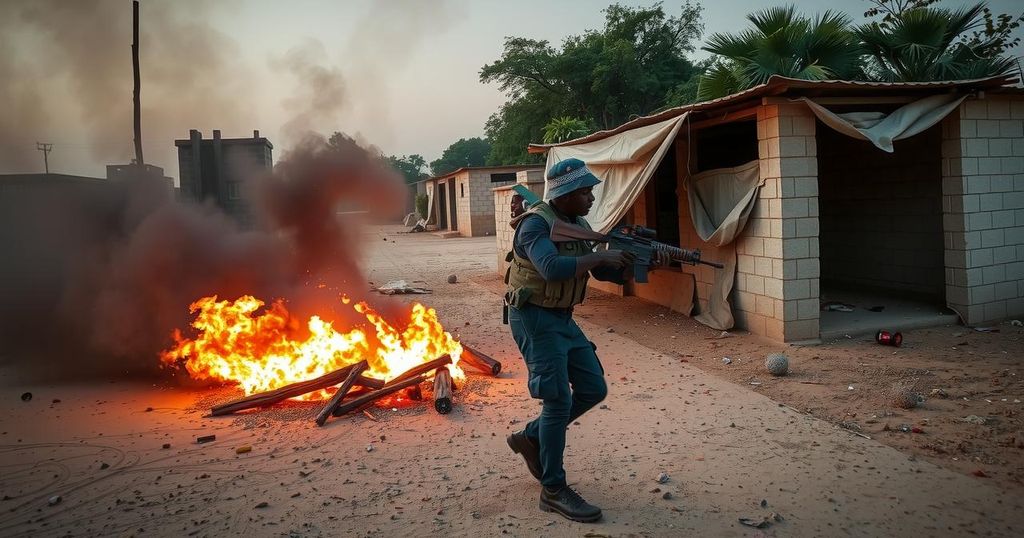In western Niger, two attacks claimed the lives of 39 individuals, including children, in December. The incidents occurred in Libiri and Kokorou near the Burkina Faso border, an area known for jihadist activity. The Nigerien defense ministry condemned these attacks, highlighting ongoing security challenges despite military operations targeting militant groups.
On Saturday, the Nigerien defense ministry confirmed that two separate attacks near the Burkina Faso border resulted in the deaths of 39 individuals, including children. The tragic incidents occurred in the communities of Libiri and Kokorou within the Tera border region, an area notorious for violent jihadist activity. According to the ministry, 21 victims were recorded in Libiri while 18 were killed in Kokorou during the operations between December 12 and 14. The ministry condemned these actions as barbaric and aimed at defenseless civilians, attributing them to criminals pressured by ongoing military operations.
The Tera region has been a long-standing stronghold for jihadist factions linked to the Islamic State and Al-Qaeda, contributing to the climate of insecurity. This region, located at the intersection of Niger, Mali, and Burkina Faso, has been plagued by a deadly insurgency that primarily targets civilian populations amidst a backdrop of persistent unrest. Such incidents are part of a broader trend, as evidenced by an earlier attack on December 7, which resulted in the deaths of 21 civilians traveling in a goods convoy, and a significant assault on December 11 that reportedly resulted in the death of over 90 soldiers and 40 civilians.
In response to the rising violence, which has prompted humanitarian concerns for thousands of displaced individuals, the Nigerien military junta has intensified calls for enhanced security measures and international assistance. However, the junta has also begun to dismiss media reports that contradict its narrative, including alleging misinformation in claims of recent attacks. In a notable move, the government has temporarily suspended the BBC radio operations, reflecting an increasing trend of diminishing press freedoms as international media face growing scrutiny.
Despite the government’s efforts, the porous borders and challenging terrain continue to provide militants with opportunities to strike at both security forces and innocent civilians. As jihadist activities escalate, Niger stands at a precarious juncture, wrestling with the dual challenges of ensuring national security while addressing the humanitarian crisis at hand.
Violent jihadist activity has destabilized the western regions of Niger, particularly along the borders with Burkina Faso and Mali. Groups linked to the Islamic State and Al-Qaeda have found refuge in these borderlands, exploiting the region’s volatile socio-political conditions. The recent escalations in violence reflect a broader trend of insurgency that threatens not only security but also undermines humanitarian efforts. The Nigerien military junta, which assumed power following a coup in July 2023, has maintained a heavy hand against perceived dissent, further complicating the landscape for freedom of press and civil liberties in the country.
The tragic death toll resulting from recent jihadist attacks underscores the urgent need for enhanced security measures in Niger, particularly within the volatile Tera region. As the government navigates both internal challenges and external pressures from militant groups, it must also contend with a growing humanitarian crisis that affects thousands of civilians. International support will be pivotal in addressing these intertwined issues to restore stability in this troubled area.
Original Source: dailypost.ng






